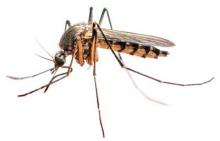WHO Declares ‘Public Health Emergency’ for Microcephaly Linked to Zika Virus
BY MARY ELLEN SCHNEIDER
Frontline Medical News
The World Health Organization (WHO) has declared a “public health emergency of international concern” related to the clusters of microcephaly and other neurological complications reported in Brazil and earlier in French Polynesia. Though there is a strong association between these cases and the Zika virus, a causal link still has not been scientifically proven, according to the WHO.
The WHO’s emergency declaration clears the way for the international health community to move forward with a coordinated response. Dr Margaret Chan, WHO Director-General, said her organization plans to take a number of precautionary measures, including improving surveillance and detection of infections, congenital malformations, and neurological complications. They will also work with countries to intensify control of mosquito populations and help expedite the development of diagnostic tests and vaccines to protect at-risk populations.
The recommendations came after a February 1 meeting of the International Health Regulations Emergency Committee, which Dr Chan convened in response to the Zika virus outbreak and the observed increase in neurological disorders and neonatal malformations.
The group of 18 experts advised that the clusters of microcephaly and other complications constitute an “extraordinary event and a public health threat to other parts of the world.” The group did not recommend any restrictions on travel or trade with areas where the Zika virus transmission is ongoing, however.
“At present, the most important protective measures are the control of mosquito populations and the prevention of mosquito bites in at-risk individuals, especially pregnant women,” Dr Chan said during a press briefing.
Dr Chan said it’s unclear how long it will take to determine if Zika virus is causing the uptick in microcephaly and other congenital malformations and neurological abnormalities, but health officials are working to set up case-control studies.
Preparing for Zika Virus Outbreaks
BY DEEPAK CHITNIS
Frontline Medical News
The recent spike in Zika virus cases in Central and South America brings with it the alarming risk— and even the expectation—of outbreaks occuring in the United States. How should US-based clinicians prepare for the inevitable?
“The current outbreaks of Zika virus are the first of their kind in the Americas, so there isn’t a previous history of Zika virus spreading into the [United States],” explained Dr Joy St. John, director of surveillance, disease prevention, and control at the Caribbean Public Health Agency in Trinidad.
But now that the virus has hit the United States, with a confirmed case in Texas and more emerging since then, Dr St. John said the most important thing is for US health care providers to recognize the signs and symptoms of Zika virus infection. Carried and transmitted by the Aedes aegypti species of mosquito, Zika virus symptoms are relatively mild, consisting predominantly of maculopapular rash, fever, arthralgia, myalgia, and conjunctivitis. Only one in five individuals with a Zika virus infection develop symptoms, but patients who present as such and who have traveled to Central or South America in the week prior to the onset of symptoms should be considered likely infected.
“At present, there is no rapid test available for diagnosis of Zika,” said Dr St. John. “Diagnosis is primarily based on detection of viral RNA from clinical serum specimens in acutely ill patients.”
To that end, polymerase chain reaction (PCR) testing can be conducted on serum samples collected within 3 to 5 days of symptom onset. Beyond that, elevated levels of immunoglobulin M antibodies can be confirmed by serology, based on the neutralization, seroconversion or four-fold increase of Zika-specific antibodies in paired samples. However, Dr St. John warned that “Due to the possibility of cross reactivity with other viruses, for example, dengue, it is strongly recommended samples be collected early enough for PCR testing.”
Zika and Pregnancy
Zika virus has now been identified in 14 countries and territories worldwide, and while most infected patients experience relatively mild symptoms, Zika becomes very concerning when it infects a pregnant woman, as there have been cases of microcephaly in children whose mothers were infected with Zika virus during pregnancy. Although the association of microcephaly with Zika virus infection during pregnancy has not been definitively confirmed, the Centers for Disease Control and Prevention (CDC) have already issued a warning to Americans—particularly pregnant women—about traveling to high-risk areas.
“Scientifically, we’re not 100% sure if Zika virus is causing microcephaly, [but] what we’re seeing is in certain Brazilian districts, there’s been a 20-fold increase in rates of microcephaly at the same time that there’s been a lot more Zika virus in pregnant women,” explained Dr Sanjaya Senanayake of Australian National University in Canberra.

